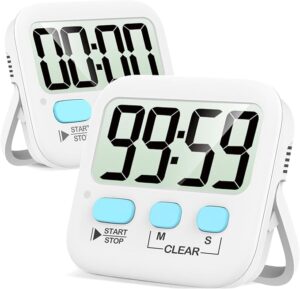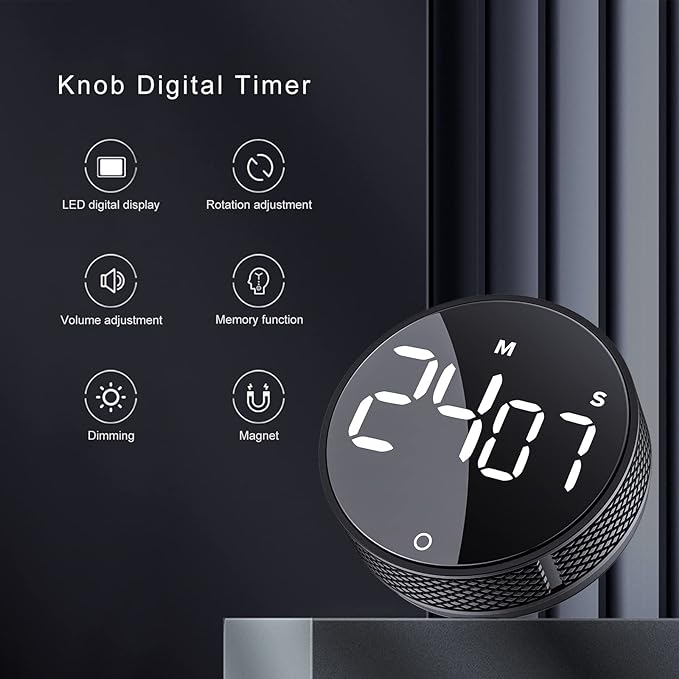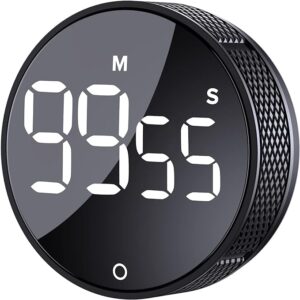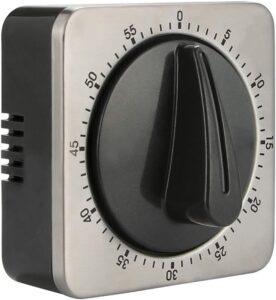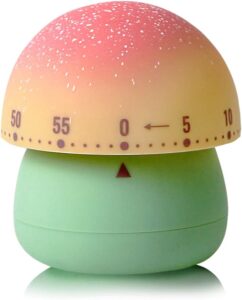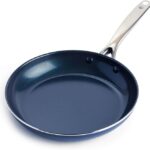The Importance of a precise Kitchen Timer for Perfect Cooking 2024
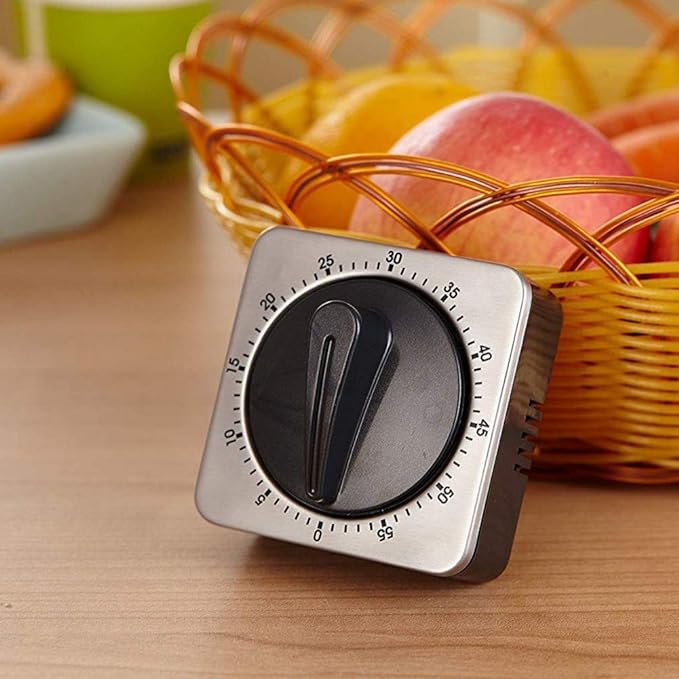
Today, let’s chat about a small but very critical tool that every kitchen should have: the kitchen timer. It might seem like a simple gadget, but a timer is an absolute game-changer for ensuring your culinary creations come out perfectly every time. Do you wanna know why a kitchen timer is essential and how it can make your cooking experience smoother and more enjoyable? Keep on reading!
Table of Contents
Why You Need a Kitchen Timer
- Precision Cooking: Whether you’re baking a cake or roasting a chicken, timing is everything. A timer helps you keep track of cooking times with precision, ensuring your dishes are cooked to perfection. No more burnt cookies or undercooked meat!
- Multitasking Master: Cooking often involves juggling multiple tasks at once. A timer allows you to manage different cooking times simultaneously, so you can boil pasta, bake bread, and simmer sauce without missing a beat.
- Consistency: Using a timer helps you achieve consistent results every time you cook. By timing your cooking processes, you can replicate successful dishes and avoid mistakes.
You Can Order Your Own Kitchen Timer Now
Types of Kitchen Timers
Digital Timers: These are easy to read and often come with multiple features like countdown, count up, and multiple timers in one device. They’re great for precise timing and can usually be set to the exact second.
You Can Order Your Own Kitchen Timer Now
Mechanical Timers: These classic timers are wound up manually and tick down to zero. They’re simple to use and don’t require batteries, making them a reliable choice for basic timing needs.
You Can Order Your Own Timer Now
How to Use a Kitchen Timer Effectively
- Set Up Before You Start: Before you begin cooking, set up your timer(s) based on the recipe’s instructions. This ensures you don’t forget to start the timer when you’re in the midst of cooking.
- Label Your Timers: If you’re using multiple timers, label them for each task. For example, “pasta,” “bread,” and “sauce” can help you keep track of what each timer is for.
- Regular Checks: Even with a timer, it’s good practice to check on your food periodically. Timers are great, but they don’t replace the need to visually inspect your dishes.
You Can Order Your Own Timer Now
Advanced Timer Tips
- Staggered Timers: When preparing multiple dishes that need to be ready at the same time, set staggered timers to ensure each component finishes cooking simultaneously.
- Prep Timer: Use a timer to keep track of prep times, especially when marinating meat or letting dough rise. This keeps your cooking process efficient and well-coordinated.
- Resting Time: Remember to set a timer for resting periods as well. For instance, after cooking a steak, let it rest for a few minutes to retain its juices and enhance flavor.
You Can Order Your Own Kitchen Timer Now
Conclusion
A timer is more than just a countdown device; it’s an essential tool that enhances precision, consistency, and efficiency in your cooking. Whether you opt for a digital, mechanical, or app-based timer, incorporating this simple gadget into your kitchen routine can significantly improve your culinary outcomes. So next time you start a cooking adventure, make sure your kitchen timer is by your side to help you create delicious, perfectly timed meals.
You Can Order Your Own Kitchen Timer Now
Read More:
Introducing Cuisineart Stainless Steel Cookware Set (10 Piece) – Reviewed

